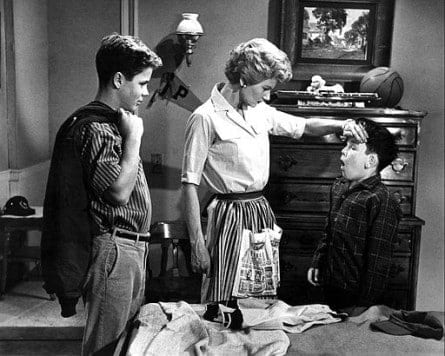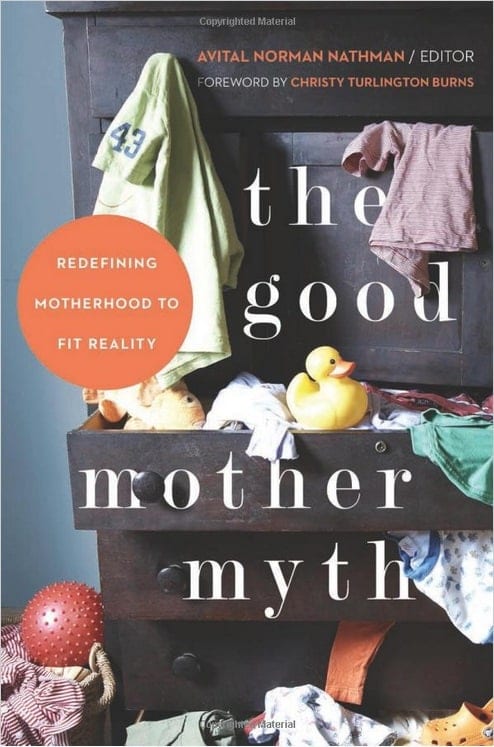The feminist narrative changed many things for women. They vote. They have careers. They are respected.
Alas, societal expectations of women in many ways, have not changed. When the children are clean, neatly dressed, and possessed of good manners, their moms are praised as “good mothers.” When a tantruming child is dropped off at daycare screaming the f word through a mouth rimmed with sleep crust, dressed in the same pair of dingy shorts for the third day running because Mom was overwhelmed with deadlines at work, the tsks hang in the air, even unuttered, at a mother that seems unable to cope with even the most basic duties of mothering.
This is the epiphany that came to blogger and professional editor Avital Norman Nathman as she watched the media judging moms in subtle and not-so-subtle ways, and as she observed her own efforts at mothering her child.
In the early days after her son was born, there were guests and gifts. Then at last, Avital was alone with her infant son.
The hours seemed to stretch forward in an endless, silent march. Avital had no idea how she would fill the time with only a tiny infant, incapable of speech, for company. It occurred to Avital that she was completely unprepared for her role; but as she felt her way gingerly onward, she realized that no other mother automatically knew what to do, either.
As it turned out, societal expectations had conspired to create this idea that “good mothers” are capable and know just what to do in every instance and at every turn. And this was holding women back and making them feel bad. The good mother myth hurt the collective self-conscious of mothers everywhere which by the way, could not have been very good for their children.

Norman Nathman felt compelled to let women (her sistahs!) know that the “good mother” is a mythical figure of epic proportions, that there are many ways to mother, and that most mothers, if they are doing their best, are doing just fine. To that end, Avital compiled several essays on mothering (including one of her own), and published them as The Good Mother Myth. Kars4Kids Parenting Editor Varda Epstein spoke with Avital to find out more about her book, its premise, and why she felt compelled to share her theory.
Varda Epstein: At what point did you decide to write The Good Mother Myth and why?
Avital Norman Nathman: The idea for The Good Mother Myth came to me a few years ago. I’ve been writing about motherhood and parenting for a while and noticed certain trends when it came to the way those topics were framed in mainstream media. I was frustrated that motherhood was only being shown in very prescribed ways – either as this unrealistic ideal to live up to, or various stories of motherhood were being co-opted as cautionary tales. Then, it was a Time Magazine cover that really pushed me over the edge. It was of a mother nursing her 3-year-old son (while he stood up next to her) and the looming title, “Are You Mom Enough?” above them. It was then that I decided we needed more and varied voices of motherhood out there so we could take back how we define it and whose stories were being told.
Varda Epstein: Before you came to your epiphany about mothering, was there a mythical mother figure you tried to emulate?
Avital Norman Nathman: I didn’t really have one. I just tried to do my best within my own situation. Although I did – and still do to this day – draw inspiration from both my mother and my maternal grandmother. They’re both rather inspiring!
Varda Epstein: In the years to come what do you think your child will say about you and the role you played in his life as his mother?
Avital Norman Nathman: I hope he’ll say that he remembers having fun, learning, exploring, traveling, and that I was a central part in all of that (as he is with my own experiences).
Varda Epstein: What’s next for Avital Norman Nathman?
Avital Norman Nathman: I’m currently working on book #2 which will explore the notion of the “Perfect Birth” myth in US society, and how the current birthing industry isn’t set up to mesh with it quite so well.
“It’s a job and you work at it.”
Varda Epstein: That will be a fascinating read! Every woman will want to read that one. One last question: what has been the effect of realizing you’re a “good enough” mother?
Avital Norman Nathman: I don’t necessarily call myself a “good enough” mother. I think I’m a great mother. I do the best that I can, I try to make that precarious work/life balance as steady as possible, and meet all the needs of my family while simultaneously meeting my own. Is it always easy? No. It’s a job and you work at it. But I also give myself plenty of slack and the ability to realize that regardless of what others’ opinions may be, it all boils down to what works for me and my family.
